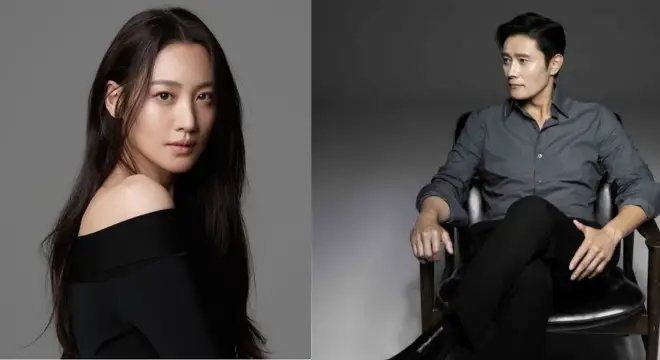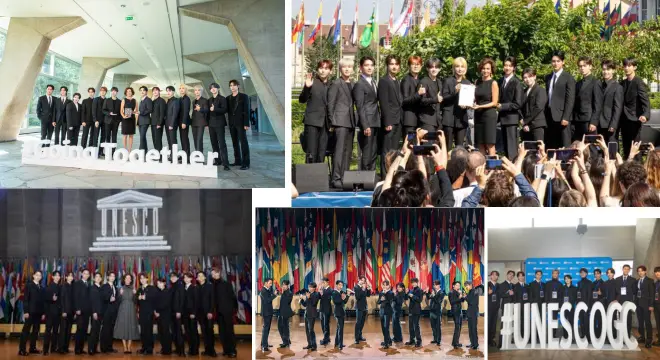|
Getting your Trinity Audio player ready...
|
Is Jun Ji-hyun still the undisputed queen of K-dramas?
Can her long-awaited comeback drama Tempest live up to the hype?
And why has a single dialogue sparked such a storm across borders?
After a four-year hiatus from the small screen, Jun Ji-hyun is back with Disney+’s ambitious political thriller Tempest. The series has begun to gain worldwide attention and has also sparked unexpected controversy in China, placing one of Korea’s most loved actress against a tide of discontent.
Let’s examine the ways Ji-hyun’s return has morphed into one of the trending K-drama discussions of 2025.
2. The Drama: Tempest
At its core, Tempest is a politically charged thriller that straddles the line between diplomacy and power plays. Jun Ji-hyun plays Seo Mun-ju, a shrewd, dynamic ex-UN ambassador who crashes the political playground of running for president. Mun-ju is a fearless, smart, and ambitious character; a courageous departure from the romantic and fantasy characters she has played in the past.
On screen alongside Jun Ji-hyun is Kang Dong-won, whose intensity matches her performance as well as deepening the political drama. Together, the cast weaves together an engaging tale of international diplomacy, individual sacrifice, and national identity.
3. The Controversial Line
Episode 4 put Tempest in the spotlight when the character Seo Mun-ju, portrayed by Jun Ji-hyun, makes a powerful statement: “Why does China prefer war? A nuclear bomb could strike at our border.”
While this statement is fictional in nature, it found its way onto social media and quickly gained traction with anger from Chinese viewers who believed the statement disrespected China’s image or misrepresented their civilized demeanor and commitment to peace and diplomacy.
As the inter-cultural debate continued with clips being shared on social media, fans and critics reacted and debated the statement’s intention and context. This one line – while incendiary – would create inter-cultural tension as well as cultural conversations about responsibility in storytelling across cultures and the impact of international media as a representation in how people and countries are perceived.
4. Broader Criticisms from Chinese Netizens
The criticism of Tempest extended beyond a single reaction, with Chinese netizens identifying multiple other areas of the drama that they deemed problematic.
One prominent aspect highlighted is the depiction of Dalian city, which was filmed in Hong Kong but represented as rundown and filthy, leading some viewers to feel like the portrayal was detrimental to the reputation of the city.
Additionally, there were scenes depicting a carpet resembling the Chinese national flag being walked on, and a caricature of a villain speaking negative context about the Chinese language, which received harsh criticism. Viewers argued that each of these elements summarized the most negative stereotype of a negative stereotype of Chinese culture.
Jun Ji-hyun herself, came under scrutiny for her recital of a poem by the Tang Dynasty poet, Li Bai, and some claimed that her style of pronunciation was distorted. Although these criticisms were based on production and performance details, these critiques were added into a broader discussion regarding the portrayal of cultural symbols and international settings related to Chinese media.
5. Online Reaction & Backlash
The dubious dialogue and scenes from “Tempest” traveled quickly on Chinese social media in the public domain, leading to pestering discussions and much disdain. Snippets from “Tempest” went viral online and angry and disappointed netizens criticized what they thought were false representations of China.
Many were calling for a boycott of brands endorsed by Jun Ji-hyun while others expressed the need for accountability from the production team. The comments varied from harsh derogations of the actress and the drama itself, to discussions and rationalizations of artistic freedoms and author’s intentions.
However, there was a split down the line, with some views maintaining that dialogue and scene should be seen in the context of artistry, whereas others dismissed this perspective entirely and clung to perceived slights. In the end, the divide heightened the controversy, placing it within the most discussed K-drama conversations of the year.
6. Advertising Fallout
The scandal quickly moved into the advertising space, having ramifications over brands connected to Jun Ji-hyun. Luxury brands like La Mer, Louis Vuitton, and Piaget, faced with increasing public backlash, allegedly removed, or halted advertisements with the actress on Chinese social media networks.
Jun Ji-hyun’s agency later made it clear that some of these contracts had been completed long before the controversy and had nothing to do with the drama. Nevertheless, it underscored how fast public outrage can translate into a decision to break with brand collaborations and showcased the nuance in a stars ability to cross international markets.

7. The Irony of Illegal Viewership
To add an ironic twist to the controversy, Disney+ is not officially available in China, so many Chinese viewers watch the drama Tempest via VPNs or pirated streaming sites.
Although they viewed the drama on unofficial channels, many of these viewers were nonetheless among the most vocal detractors, further amplifying the absurd tension between illegal access, public disdain, and a shared sense of outrage.
The situation led to discussions not only about cultural sensitivity, but also about the moral responsibility of all viewers in judging the legality of any content they view.
8. Political & Cultural Angle
The negative reaction to Tempest similarly raised questions about the Hallyu ban, an unofficial restriction on Korean entertainment in China that has persisted since 2016. This ban emerged as a result of geopolitical conditions, specifically South Korea’s implementation of the THAAD missile defense system, which Beijing considered debt to be a debt against China’s military position.
This discussion speaks to the intersection of entertainment and politics, where portrayals in the media appear to catalyze broader diplomatic tensions. Over the years, China has also shown its history of boycotting international brands it considered to infringe upon national pride, which highlights the tension in cultural and political scenarios for international stars such as Jun Ji-hyun.
9. Public & Scholarly Opinions
The response to the Tempest controversy has been very polarized. Some netizens blamed the writers and production team, stating that Jun Ji-hyun was just doing her job as an actor; she had to follow the script. However, others and particularly the nay-sayers said she should have influenced the script by dictating and demanding changes as one of the biggest stars in Korea.
Attaching a more academic lens, professor Seo Kyung-duk commented on the irony saying many of these Chinese netizens voiced their opinions only after having watched the drama or in some cases, getting access to a pirated VPN sometimes before it even aired in Korea. He stated the contradictions that emerged demonstrated a growing contradiction between the consumption of international media and cultural resolve.
Furthermore, there are now additional speculations from supporters and those following her life. Queries such as:
- Is Jun Ji-hyun a natural beauty?
- How much does Jun Ji-hyun get paid?
- How much does Jun Ji-hyun get paid?
These questions reflect the enduring fascination with the actress, not just for her on-screen performances but also for her persona off-screen.
10. Global Impact & Future Outlook
Even with all the controversy, Tempest continues to do well internationally on Disney+, placing among the top-viewed Korean originals in 2025. A vote of confidence in Jun Ji-hyun’s lasting power and global appeal to audiences.
However, the backlash reminds us that Jun Ji-hyun is still up against challenges in China, where cultural sensitivities and geopolitical matters can make a major difference.
The curiosity of fans and readers when it comes to Jun Ji-hyun’s personal life also prevails, such as questions like:
- Who did Jun Ji-hyun marry?
- Does Jun Ji-hyun have children?
- Who is Jun Ji-hyun’s husband?
These questions reveal her not only in a professional sense but also publicly interest in her life beyond the screen.
11. Conclusion
The return of Jun Ji-hyun, a global superstar, to television with Tempest, has confirmed that no one, even a global superstar, is immune to the complications of politics, a culture, and international criticism. While her performance is being appreciated by audiences around the globe, the response of the Chinese audience shows the thin line to walk in this new world in which Korean performers are being exposed to international audiences.
On a broader note, this entire episode can just lead one to wonder, what does this mean to the future of Hallyu? Are Korean dramas, and K-pop, going to be able to recover fully in China, or do cultural and political sensitivities stand as a barrier? Only time will tell how stars, like Jun Ji-hyun, navigate these treacherous waters and retain their global relevance.


